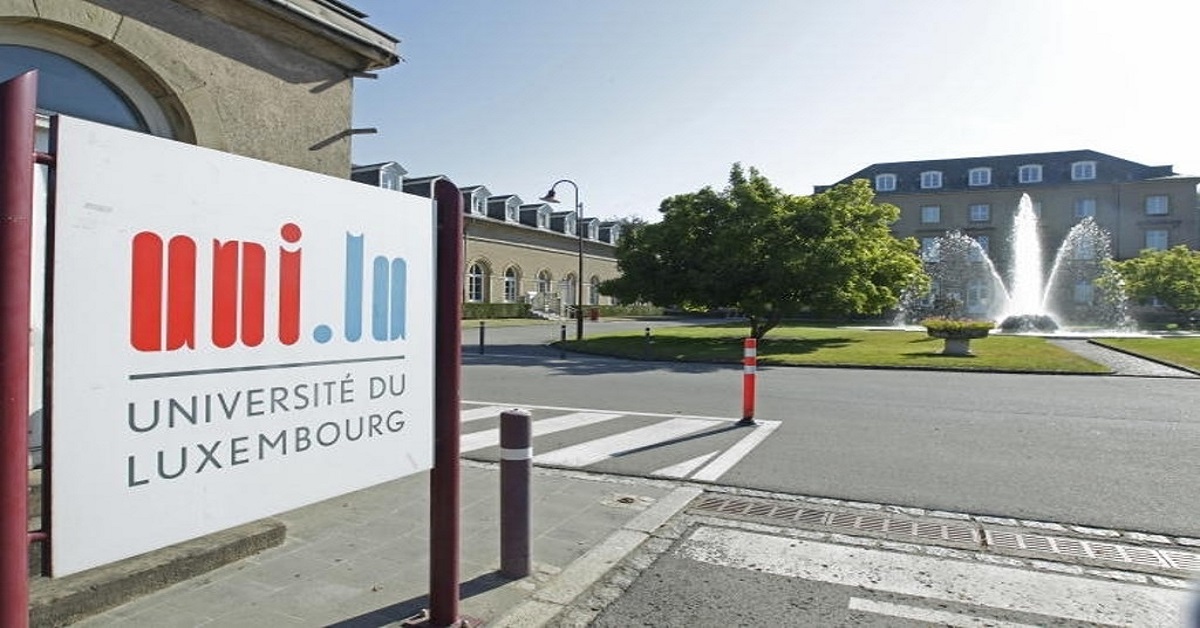The University of Luxembourg is an international research university with a distinctly multilingual and interdisciplinary character. The University was founded in 2003 and counts more than 6,700 students and more than 2,000 employees from around the world. The University’s faculties and interdisciplinary centres focus on research in the areas of Computer Science and ICT Security, Materials Science, European and International Law, Finance and Financial Innovation, Education, Contemporary and Digital History. In addition, the University focuses on cross-disciplinary research in the areas of Data Modelling and Simulation as well as Health and System Biomedicine. Times Higher Education ranks the University of Luxembourg #3 worldwide for its “international outlook,” #20 in the Young University Ranking 2021 and among the top 250 universities worldwide.
The Faculty of Humanities, Education and Social Sciences (FHSE) brings together expertise from the humanities, linguistics, cognitive sciences, social and educational sciences. People from across 20 disciplines are working within the Faculty. Along with the disciplinary approach a very ambitious interdisciplinary research culture has been developed.
The faculty’s research and teaching focuses on social, economic, political and educational issues with the common goal of contributing to an inclusive, open and resourceful society. The FHSE offers six Bachelor and twenty Master degrees and a doctoral school providing students with the necessary knowledge and high-qualified skills to succeed in their future career.
The Department of Geography, Spatial Planning and Architecture (DGEO) is composed of around 50 staff members and researchers from various disciplines. They work together to examine spatial development processes on a local, regional and international level. Further information at: https://wwwen.uni.lu/recherche/fhse/dgeo
Your Role…
The University of Luxembourg invites application for a PhD candidate in Spatial Analysis and Urban Modelling within its Department of Geography and Spatial Planning (DGEO), Faculty of Humanities, Social Science and Education (FHSE).
The candidate will prepare a doctoral thesis in Geography under the supervision of Prof. Geoffrey Caruso.
The research goals are open but to be developed in order to contribute an original generic understanding of urban processes and patterns at the scale of several urban regions or through formalised theoretical models, i.e. not a unique case study. The exact topic can relate to land use patterns and change especially the interaction between the natural/green and the built environment, to the climate or environmental impacts of urban structures (pollution, noise, carbon balance), to linking socio-demographic patterns related to environmental externalities (segregation, justice) or to the production of the built space itself (housing in particular) and land markets.
The candidate will employ advanced spatial analysis and modelling techniques such as a combination of spatial econometrics and high-resolution image or vector data analysis over a large set of cities, and/or spatial simulation techniques (agent-based) across applied heterogeneous environments or theoretical, fully controlled, environments. Conceptual frameworks will typically relate to formalised theories in urban geography, urban economics or urban scaling.
Applications will also be considered in the field of urban experimentation in the case the candidate can demonstrate a very strong background and experience with creating virtual reality environments or immersive videos and a capacity to develop online tools to scale up experimentation beyond a single lab.
In addition to preparing a doctoral thesis, the candidate will also contribute teaching with R, including basic statistical analysis and econometrics and the use of spatial packages (sf, terra), and will contribute to tutoring Master students.
What we expect from you…
- Master in geographical science, planning, economics or social science, environmental science, mathematics, physics, or computational science.
- Demonstrate some experience with geographic thinking and proficiency with mathematical, statistical, or computational tools.
- Mathematical and computer literacy (programming, parallel computing, prior simulation work) are important.
- Experience with open-source GIS and/or R is particularly valued.
- Interest for interdisciplinary work
- Curiosity and open mindedness are fundamental.
- Good command of English
In Short…
- Contract Type: Fixed Term Contract 36 Month
- Employee and student status
- Work Hours: Full Time 40.0 Hours per Week
- Location: Belval
- Internal Title: Doctoral Researcher
- Job Reference: UOL05918
The yearly gross salary for every PhD at the UL is EUR 39953 (full time)
How to apply…
Applications should be submitted online and include:
- Curriculum Vitae
- A cover letter including a motivation for the job (1 page max) and a project draft (around 2 pages)
- Any publications to date
- A reference letter from a recent supervisor or at least two reference names
We ensure a full consideration for applications received by 17th August 2023.
Early application is highly encouraged, as the applications will be processed upon reception. Please apply formally through the HR system. Applications by email will not be considered.
The University of Luxembourg embraces inclusion and diversity as key values. We are fully committed to removing any discriminatory barrier related to gender, and not only, in recruitment and career progression of our staff.
Here’s what awaits you at the University
- Multilingual and international character. Modern institution with a personal atmosphere. Staff coming from 90 countries. Member of the “University of the Greater Region” (UniGR).
- A modern and dynamic university. High-quality equipment. Close ties to the business world and to the Luxembourg labour market. A unique urban site with excellent infrastructure.
- A partner for society and industry. Cooperation with European institutions, innovative companies, the Financial Centre and with numerous non-academic partners such as ministries, local governments, associations, NGOs …
